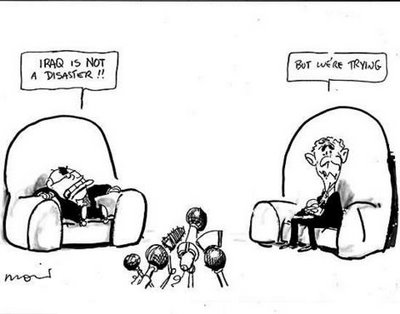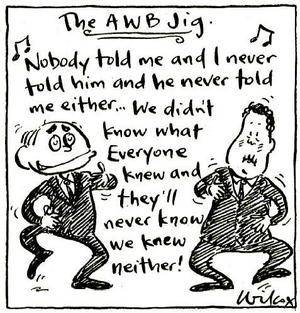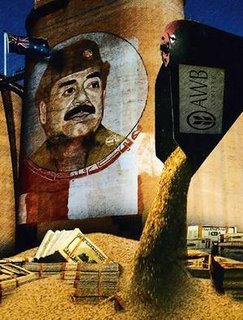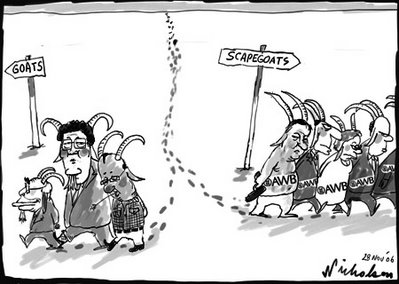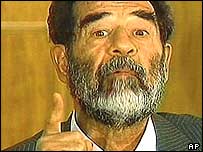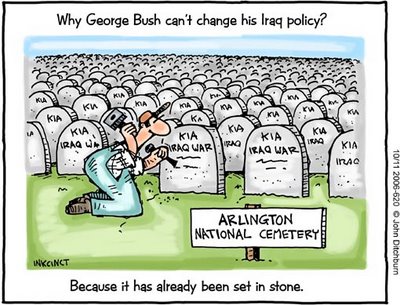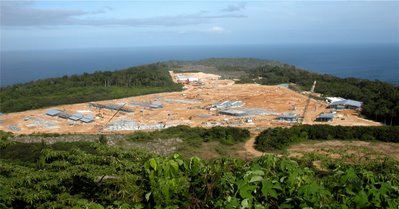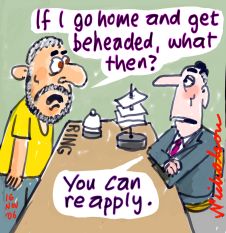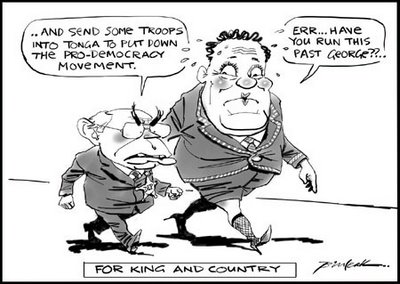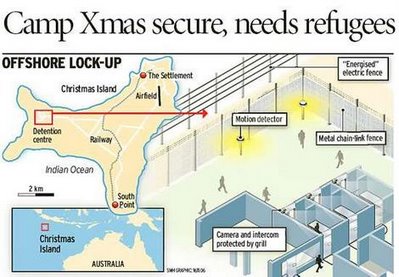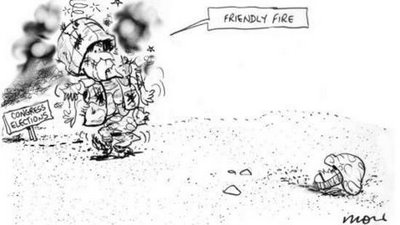Ms Hamilton said her evidence was misrepresented to draw a conclusion that she disagrees with — that DFAT had no responsibility for checking contracts and detecting kickbacks.
The former diplomat complained about the misuse of her evidence after seeing a draft of the report, but her concerns were not redressed."
The Age article goes on to say that "During the inquiry, AWB managers claimed their dealings in Iraq had been approved by the Australian Government because all contracts were checked by DFAT officials. But several DFAT employees told the inquiry they never examined the contracts for probity, instead describing their role as that of a "post-box".
Part-responsibility for vetting the contracts lay with DFAT's employee at the UN mission, Bronte Moules. Ms Hamilton was asked to give evidence to the inquiry because she was Ms Moules' predecessor, working in New York until 1998 — the year before the kickbacks started.
Mr Cole's report adopts the DFAT argument that Ms Moules and others fulfilled a "postbox" function and says that Ms Hamilton's evidence was "to the same effect". But Ms Hamilton said the postbox excuse was a "total cop-out". She added: "I would never have thought like that."
She said that references in the contracts to "transport fees" paid by AWB, later revealed to be kickbacks, should have raised a red flag for DFAT staff and concerns should have been taken up at the highest levels.
Ms Hamilton told The Age that while in the job, she considered it her duty to scrutinise contracts she passed to the UN. She is confident she would have noticed the kickbacks had they occurred while she was in charge. "I would have raised hell about it," she said."
From my experience, I can confirm that senior officials would not ignore such red flags unless it was made abundently clear from on high that they should do so. It has to be remembered that DFAT had an oversight responsibility in an area of UN dealings that was super-sensitive. It is inconceivable that responsible officers would ignore warnings of this nature.
The difficulties of doing business in what have come to be known as "spoilt markets" (where competitors routinely offer mixed credits, concessional financing and kickbacks to do business) is not grounds for turning a blind eye to this type of corruption, particularly as Australia had committed defence and other assets to uphold the sanctions regime against Iraq. This goes beyond the normal argy bargy of trading in developing countries into an area that undermines our national security interests and our integrity as a trustworthy member of the international community.
In any other Westminister-style jurisdiction the responsible Minister would have resigned by now. I think the whole government should take responsibility for this scandal but I retain an idealistic notion that elected leaders are trustees of the community - when that trust is misused they forfeit the right to lead.

